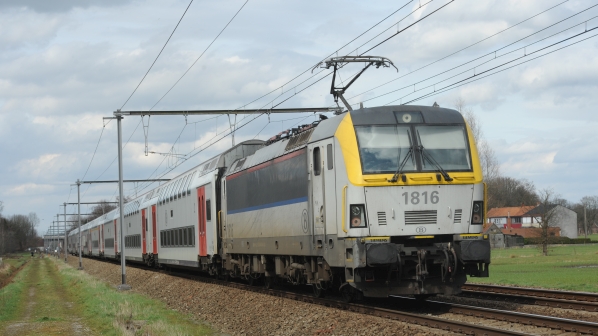The ‘National Interest Train Service’, which ensures around 75% of normal capacity, came into force on March 23 and will run until April 5. Services currently in operation are reporting occupancy rates of 8-10%.
SNCB says the measure is designed to minimise disruption and service cancellations due to staff shortages during the pandemic, which in turn leads to overcrowding on subsequent services.
This follows rising levels of staff absences. On March 18, Infrabel noted a 15% absenteeism rate among signal box staff, which is normally between 4 and 5%. Exceeding 25% would have a significant effect on Infrabel’s ability to safely operate the railway, potentially leading to closures across some or all of the network.
The level of absenteeism among SNCB train drivers more than doubled in two weeks, with between 23% and 30% of drivers unavailable on March 19 in some regions. A similar trend has occurred with other staff such as infrastructure and fleet maintenance personal.
SNCB and Infrabel say the National Interest Train Service will ensure sufficient capacity remains available on all lines, with the staff required to runs these services.
SNCB will continue to operate the longest composition of trains possible, to allow space for passengers to socially distance.
The new timetable includes:
- one to two trains per hour on the inter-city lines
- two to three trains per hour during peak hours on the local lines (L and S trains)
- nearly all inter-city trains departing after 21.00 and nearly all L and S trains departing after 20.00 will be cancelled, with passengers advised to check the timetable for trains departing after 19.00, and
- services on local lines including L and S trains will be severely limited between 09.00 and 15.00.
“The railway family will be able to meet the demand and the current mobility challenge,” says federal minister for mobility, Ms François Bellot. “It must remain possible to take the train, in the safest conditions and with due regard to the health regulations, both for passengers and for the employees of Infrabel and SNCB.”

